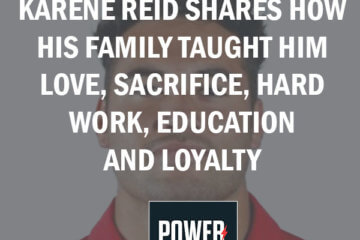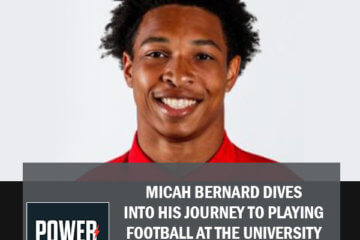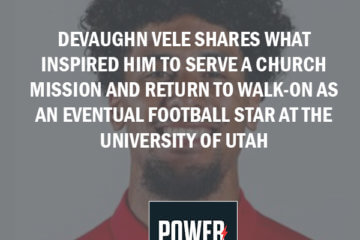Listen to the Podcast Here
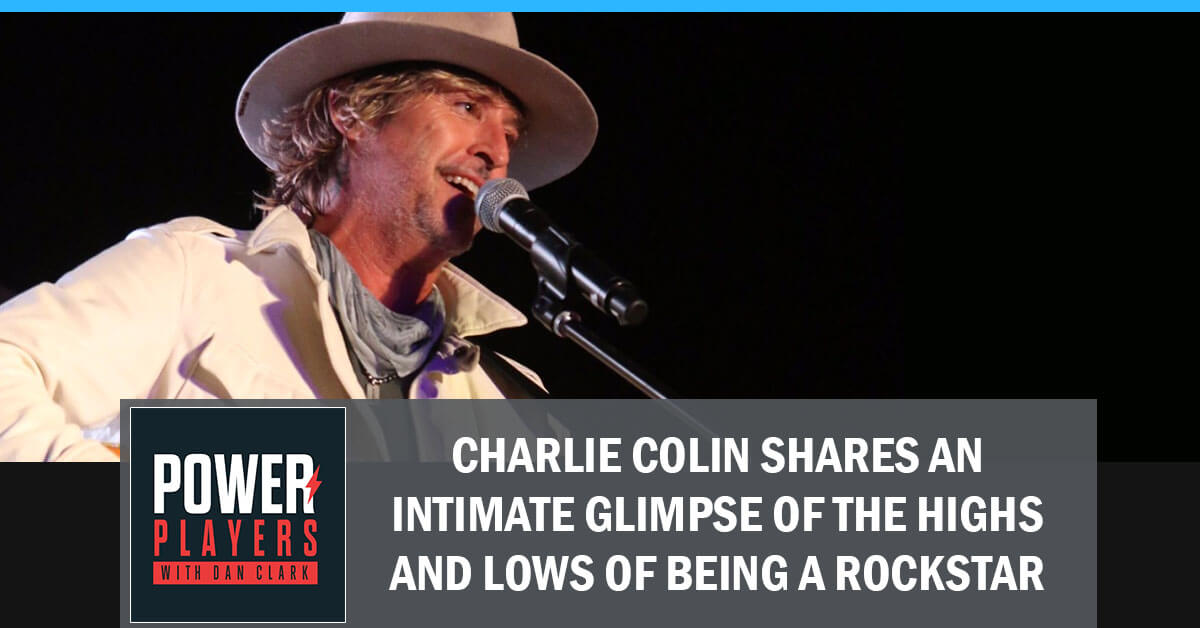
Being a rockstar isn’t as glamorous as most people think it is. In this episode, Grammy award-winning musician, songwriter, lyricist, and producer, Charlie Colin, gives us an intimate glimpse of the highs and lows of being a rockstar. Charlie sits down with host Dan Clark to share his first-hand experience in the limelight as a member of the band Train and how it impacted their music. He also opens up about the struggles of being a creative and what that word means today. Tune in for an interesting and eye-opening discussion as Charlie shares the lessons he’s learned as well as his plans as he steps into a new era in his creative journey.
—
Charlie Colin Shares An Intimate Glimpse Of The Highs And Lows Of Being A Rockstar
This interview is with rockstar founding member of the band, Train, Charlie Colin. Welcome to Power Players with Dan Clark, former athlete, hall of fame speaker, New York Times bestselling author, and high-performance business coach. Each week, I bring you an inspiring message from an extraordinary human being, who will share their secrets on how you can tap into your personal power to become everything you were born to be. Thank you so much for spending some time with me.
In this episode, my dear friend, Charlie Colin, Grammy Award-winning musician, songwriter, lyricist, producer, and founding member bass player of the platinum-selling mega rock band, Train, shares his life as a graduate of Berklee College of Music. He is the co-writer of Drops of Jupiter, Meet Virginia, and one of my all-time favorites, Calling All Angels. You’ve got to join me as Charlie gives us an intimate glimpse of the highs and lows of a rock star and how he emerged as an art collector, homeless artist advocate, philanthropist, and Director of the Newport Beach California Film Festival.
—
My guest has such an amazing life story for being such a man and a superstar in the world of entertainment. He has a magnificent heart and his human spirit is what catapults him into the limelight now and forevermore. He will talk to us about his adventures, his new endeavors and his all-star band. I won’t take any more of this precious time. It’s an honor to invite Charlie Colin to the show. Charlie, thank you so much for fitting us into your busy schedule. I know you’re probably in the recording studio making another hit.
First of all, thank you so much. I’m humbled. Even for a man of my caliber, Dan, that was a lot too big, but it was a nice introduction. I am going to the studio right after this. I technically left Train in 2005. Rob already left the band at that time, but as far as my tenure in Train, I am proud of being an original member but there’s a story behind that.
Please talk to us about where you found your passion for music and talk to us about Train. This is perfect.
I’m glad that you called me because it is a good time. I’ve been reflective too because I haven’t been able to travel and do shows or meet friends and record for the last couple of months so I’ve been looking at my catalog and thinking about what I want to do more and less of. The interesting thing about Train was it certainly plays a huge role in my story as far as successes and mistakes I’ve made because when I met Rob Hotchkiss, I was in the seventh grade and he was an Army brat.
His father was a pilot and he grew up in Berlin. He came to my hometown in Newport Beach for his senior year of high school. He was about seven years older than I was. I heard this German kid was going to play in the quad in high school. I was just out of sixth grade and that was an important summer because I went to Europe that summer for the first time. There was a culture shock and all this stuff.
Be the worst guy in the band; that way, you’ll improve more rapidly.
I came back and I was determined to take my music more seriously. I skateboarded up to the quad at high school and I saw this guy sitting on a stool in front of about 1,000 kids. This is Southern California, which is a judgmental place. It’s a tough place to be a kid. Everybody’s super cool. I had lived in Virginia the year before so that’s another story. I came back and everybody’s skateboarding, surfing, suntan, and wearing hip clothes, and I was wearing Toughskins with his rhinestone shirt. It was ridiculous.
I skateboarded up to see this guy that I heard about and he was sitting on the stool. The thing that struck me was that he was playing songs with a guitar in his hand by himself. I said, “That took so much courage. I can never imagine doing that.” You could hear this sociological dynamic of that. All these kids I realized, “They’re all holding food and nobody’s throwing anything.” I thought that was impressive. There were 1,000 high school kids. Rob and I remain friends.
My goal from that point on was to get in the band with a guy like that who was older than I was, more experienced and probably better as a musician. I thought, “I’ll always try to be the worst guy in the band. That way, I’ll improve more rapidly.” That was a lucky notion that I had because I did that. By the time I was turning nineteen, I reconnected with Rob. I left high school and went to Santa Barbara. I got there and I was playing water polo, surfing, and all that stuff. I was in a band and had a girlfriend. I realized that would be four more years than what I already had in high school in Newport Beach.
I left and I went to Berklee School of Music, which Rob had also done. When I realized that Rob had also been to Berklee, and my teachers and some of the people there knew him, we reconnected. Rob had been in LA and he started a band. He got it going. He called me up and said, “We have this record deal with PolyGram. It’s small but you’ve got to come and play bass.”
I was a jazz composition guitar major so I was like, “I’ll do it.” Because that could be in a classroom there or I could be traveling and signing to a major label with these great people. I said yes. We had to find another guy, too. That’s a different story but we listened to PennySaver, and we found this guy that seemed to be about right. We met with him and got him in the band. His name is Jimmy.
The point is, Robin, Jimmy, and I were in that band, and that band was called Apostles. We were a pretty good live band, but we didn’t know how to make a record. I’ll tell you the ending of the story and fill it in because this is pertinent. Rob, Jimmy and I were in that band for years and then we broke up. Their label dropped us and we failed in a way. The thing about that deal was that the other band that they were trying to break was a band called Tin Machine, which was David Bowie’s side project. I don’t know if you remember that one. Do you remember Soupy Sales?
Yeah.

Being A Rockstar: I was always in a band with a schedule and somewhere to be. Most of the people around me were either buying a ticket to see us or working for that organization or something. I didn’t get a lot of people telling me the truth about myself.
His two sons, Tony and Hunt Sales, were the best session players in LA, so David got those guys. We’re on the same level, so the deal was, even though it was a small deal on a small label, we got to open up for that band all over the world. Even though we didn’t sell a ton of records and weren’t a success, I got to go to Asia, Australia, and all over the world opening up with this band with David Bowie. I couldn’t have been happier. I was a professional guy that wasn’t even 21 yet. That was great but then when it fell apart, I thought that I was washed up. I got the opportunity and got every break you can get. I worked hard and it didn’t pan out and our label didn’t want to keep us.
At 22 I thought, “I’m done. I’m cooked.” It’s funny looking back and thinking that I was washed up at 22. The interesting thing was the three of us that were in that group a few years later, I stayed in that other part of the world. I lived in Singapore for two years. I did jingles and stuff like that. It was good because around that time in Hong Kong, they were losing their lease, if you remember. It was 1993, so all the expatriates were going to other places. I ended up being the only good or well-known western guitarist from the whole country of Singapore so I got every job. It was great for a while. I came back and there was a new drummer and a new singer, and that was Train.
Why am I telling you that whole story? It’s because, in essence, I was trained since I was a child. We rebranded and in 1996, we got things going well. By the end of that decade, we had hits, the Grammys, stadiums, and all that stuff. On a good note, I was a worldly guy. I ended up being accomplished and successful. At the same time, because I was always in a band with a schedule and somewhere to be and most of the people around me were either buying a ticket to see us or are working for that organization or something, I didn’t get a lot of people telling me the truth about myself. I didn’t grow up in a lot of ways.
On the one hand, I was more experienced and worldly than a lot of my friends, but on the other hand, I never had to go out there and figure it out the hard way because I always had something that I was good enough at that led the way. All of a sudden, I was 40 and all this time had gone by. I looked in the mirror and I was like, “I’m like a 40-year-old child. I don’t know what it means to be a man that has to deal with life.” I had a lot of people helping me because the group I was doing was important enough and making enough money for everybody. This chapter of my life has been interesting.
You said something that was so intriguing. I’ve heard this statement, we all have, “If you’re the smartest person in the room, you’re in the wrong room. If everybody in the group is thinking the same, then nobody is thinking at all.” You said that you always wanted to be the worst player in the band so you could always learn.
That is so intriguing to me that subconsciously that you wanted to position yourself so that you are a constant and continuous learner, a seeker of truth, success principles, and governing principles. Let’s focus on one thing you learned from the band, and then let’s transition back into a 40-year-old man looking back on what you wish you had learned and now what you know because of that experience.
This is stuff that I talk about with my peers. I’m trying to assess. I don’t want to live in the past but I like to draw on it, so this isn’t healthy for me. That concept of being the worst guy in the band was when I was in my 13, 14 and 15. I had a band called Side Effects, and the youngest guy next to me was 22. I was definitely trying to keep up. Before he knew it, I feel like maybe I even got to the point where they were trying to keep up with me because I was sprinting and taking so much in. That attitude never left me.
“You’re going to have soldiers out there. You’re going to hear what they’re listening to and meet your people. You’re going to want to write to them instead.”
I’ll give you an example about the band. It can be a metaphor for life. All this stuff can but it’s not about the career. Here’s an example. We had a hit on the radio. Here I am, now it’s around the millennium where we had a couple of songs on the radio that were successful. We’ve been playing in arenas a couple of years in a row now and sometimes bigger shows than that. Everything was selling out all the time. The big challenge was on the sophomore album.
I learned to play everything. It’s like a language. If you learn one language, you can learn a lot. I made sure that I can play the drums well and get by on the piano. I specialized with my pitch and my high voice being a real asset because I can sing in a female register practically with full voice and not falsetto. That’s a great thing to have going forward because you can recreate your album live.
There are a few people who can do that. If you hit a Labrador on the highway, there’s a good chance he can hit that high range, but other than that, I don’t know.
It takes a lot of air. Even though I was an athlete, I got a treadmill behind the bus that was put in the backstage room. I had to stay in shape because I had to breathe about 50% more than the rest of the band. It was notable. Thanks for that because that takes a lot of work. I’m always trying to get these things that were out of reach, but it also kept it interesting for me. We were a radio band and we are the last of that era. When you have a record that has a song, it won’t go away.
Our record company was great, but they wanted us to keep touring that record until it started to fall off the charts and that does make sense. That’s a normal formula, but it was going on in year three. Not making a new record in three years was not my idea of being an artist. I appreciate that my job is to write songs and perform them, and a record company’s job is to sell. I was never against it. I never understood that, us against the suits thing. I always thought that it was a clear thing. They’re like, “We will pay you in advance to make your records and go have this career in exchange for you giving us lots of material that we can sell.”
It was the whole artist against the man thing. Who was confused about this deal? It’s a good deal. In Columbia, I understood that my job was to do the work part but after a year or two, when you only had two records out so far and you’re playing 200 shows a year, it can get boring and you can start to get complacent. That’s why I would try and find ways to keep it interesting. That’s part of being a pro. It’s not always fun. I was proud of that and that was my identity.
I started playing bass with my feet with bass pedals and then I played guitar on the top. I had a little booth on my mic stand so I could play keyboard lines in between, and then I’d switch it up. That’s the cool thing about being in a band for so long. Rob, Jim and I would switch off all the time even to the point where we would switch off different nights of the week playing different instruments on different songs. We worked to keep it interesting.

Being A Rockstar: I would rather have a bigger body of work, leave behind a bigger discography, and be a part of more meaningful projects than trying to engineer what looks like a great career.
Let me ask you about the second P that I love to talk about, which is Preparation. Coming out of the COVID-19, I love to tell people, “If their resume is the same this year as it was last year, you’re the most boring, pathetic person on the planet. We need to seek new training, goals and stretches.” You’re a walking epiphany of what can happen when you prepare yourself so that you can create your own change. Do you have any advice for people who feel stuck or feel like it’s them against the world or them against the suits, as you say? You were able to trigger your passion, creativity, and imagination regardless of the record label wanting you to continually tour that same group of songs.
I took too long to get to that point, and I’m sorry, Dan. When I was out there doing that, touring the same record for a long time and stuff like that, I would look at the bands that were opening. Somehow, we had hits on the radio but I didn’t feel we were part of the culture. I didn’t feel like we had our finger on the pulse of the people we were playing for. I knew that they liked our songs on the radio, but I could see that they wanted to get that hit and they weren’t with the band.
When we opened up for bands like U2 and stuff, I noticed every person pretty much loved every song. They would want to hear the new stuff. They want to see the dynamic of the whole group evolving. I was thinking about how I was always so envious of those groups and then it dawned on me. This giant door opened and I thought, “It’s having a cool position to ask those people. Why don’t I just ask them?” I was like, “Bono, how do you become more integrated into connectivity with the people that you’re trying to connect with? What do you do?”
When I asked him that question, his response changed my life forever. He said, “The show that you’re playing tonight isn’t probably the most important show of the next 24 hours. Whether you’re playing for 1,000 people or 20,000 people, that’s great.” He goes, “What I suggest you guys do is whatever time you go to bed is fine, but get up at 4:35 AM even if you only slept for two hours, and have a runner take you or call ahead, and go to the nearest radio station.”
We had hits and it wasn’t like we were trying to get in the door. We’re in the door but I wasn’t feeling like we were connecting. We won’t be part of it and I thought, “We have this great platform, how do I make it more meaningful for all of us, audience and us alike, the band?” He goes, “Go do morning drivetime every day because here’s what’s going to happen. The DJs love music. The people who work at a radio station love music. If you go in there, they know you’re tired and they know you’re touring and playing every night. If you go in there and bring in coffee and bagels, tell a couple of jokes, maybe even sing a song during drive time, first of all, who do you think they’re going to want in? You’re going to get an army of people that appreciate that.”
“If you do that every day of your whole tour and you did 150 shows in the last nine months, then you have 100 people that know that you’re willing to work that hard. It makes an impression because they get up in bed early and go to the shows, too. You’re going to then take a picture with them. The DJ will put it in his fridge. He and his wife might love your band, then they’re going to be trying to break the band. You’re going to have these soldiers out there and you’re going to hear what they’re listening to. You’re going to meet your people and you’re going to want to write to them, instead of this remove thing.” I was like, “Wow.”
Not to mention, when you play drivetime radio, if you’re in the A markets, if you’re in Dallas, New York, or something, you’re playing for a million people instead of 20,000 in the morning going to work. The next thing I knew, we were doing that every day. We made friends with people. Every time I went to a city, we would do in-stores at record stores when they had them. I knew the record owners, the DJ’s, the radio programmers, and the promoters. We’re all like a big family. When I was writing, I was thinking about all these people that I respect and they’re going to hear it, so I better keep the bar high.
So many great bands started off playing covers.
What’s one thing you learned through all this? Looking back, what did you learn through your whole experience that brings you up to a 40-year-old oracle? You have so much wisdom now. Looking back, what’s one thing that you learned that you think all of us need to know?
I’m older than 40 now. That’s when I had the epiphany, so I’ve been working on it for the last few years for sure. I used to think about things too much. I tried too hard. I thought about the results of my efforts, how things would appear, and what that would mean. I wish I would have stayed focused on the work. I’ve worked with a lot of musicians. Sometimes I would try and position myself to be successful, and then see what that would look like and make decisions based on that. I wish I would have thought about what is good and beautiful, and where I could be the most effective and even helpful. I am now.
For example, after this interview, I’m going to produce the band. The lead singer is fifteen and I relate to him. He was bullied. He went inwards and started writing lyrics that are good. A friend of mine told me about them and I went to see them. A mutual friend of mine is a guy named Ryan Shuck. He was in a successful band in the ‘90s. He went in there with them and produced the song, and now it’s the number one most requested song. They’re a ballad. I’m going to do that one because I love big and beautiful songs. I’m shamelessly not hip. I don’t need to be overly avant-garde. If it gets to your soul and your heart, I love it.
I’m working with them and this is how I did it. I offered to work with them on this. They said that they would love that and I said, “Let’s go start working and we’ll work out the details later.” What I’m getting at is I would rather have a two-body of work, bigger discography, and be a part of more meaningful projects than trying to engineer what would look like a great career. I did that way too much and looking back, that’s wasted time for me.
Maybe jazz composition on a guitar. For those of our readers who understand jazz, everybody in the band gets an opportunity to go on their own while everybody is keeping the beat and keeping that melody. Maybe that’s how you continually live your life. Grab the guitar and feel your way through the chords, riffs, and licks.
The thing about jazz is it’s true because it’s like playing a cover. Many great bands started off playing covers, Train sure did, Stones, Zeppelin, and all those guys. I’m going to quote a different friend of mine that I’m proud of. Joe Walsh was talking about new music and he wasn’t saying, “Music today is not as effective or not as sincere as it used to be.” He wasn’t making that point, but he made a distinction. He said, “Because if you don’t use it on a computer and you’re not doing it with other people, you’re less compelled to bring more of yourself.”
I don’t know if I can make the point as well as he did. He said, “Nowadays I don’t hear people testifying as much.” I said, “What aren’t they testifying exactly?” He said, “When you think of testifying, you usually think of being quartered on the stand. Let’s say you’re trying to tell the truth so you’ve saved your life. If you don’t convince them, they’re going to hang it. That’s what’s on the line. You can be compelling when telling your story.”

Being A Rockstar: To be part of a song that has even one story like that, where it helps somebody get through something that difficult.
He’s like, “That’s what Aretha does. That’s what certain soulful players do. Even if you didn’t write the song, let’s say, if you’re playing a jazz song that’s already been around, if you take that within yourself and find that expression like your life depends on it.” That’s what he meant by testifying and that’s hard to do unless you’re playing with human beings breathing oxygen at the time. It’s hard to do it on a screen on a computer.
What a message for the generation who wants to sit in the same room and text each other instead of putting their handheld devices down and interacting belly to belly, heart to heart. This is good stuff. Of all the songs you’ve written, what’s your favorite? I’m hoping that it’s my favorite too so we can talk about it.
I’m older now. Fifteen years ago or so would have been easy. I did play with a lot of different groups. When I left Train, I went out because my ego and my identity were all at stake and I was thinking about that too much. I went out and played with all these hard rock bands. I went on a tour with Slipknot. You can imagine the guys wearing masks and stuff. These are the hardest rock bands in the world.
Their guitarist, Jim Root, broke his wrist skateboarding in Iowa. They just did a record and they were going to make a double live album, so I got to replace him because I was friends with those guys. That’s more like a multimedia art installation or concept art show because there are nine guys and there’s all this stuff going on. I found a way to appreciate that.
I played with all these different groups. I hadn’t heard at that point from Joe Walsh. If I take that advice, put myself into it, and find something within me to connect with the people I’m playing with and be of use, add value to it in any way I could, I don’t care what I’m playing. I swear. I don’t mind if I’m singing, playing guitar, piano, bass, whatever. My favorite song after all that time playing with all these different groups, could it be a tie?
Yeah.
If you’re going to be in a pop band, in a popular culture music rock band, the point is to go out there and play with the popular majority of the people, as many people as you can. I felt like I was proud and successful in conveying some good stuff in Calling All Angels. My role in Train, as far as a writer goes, Pat did most of the work lyrically, but I’ve usually pulled the music, ideas, and basic content of the song out of the ether. I’m going to work it up and I would give him a lot to work with. I usually give him a phrase or two of an idea, and then he would take it and work on it. For about eight years, Pat and I were on fire. We were fantastic writing partners.
If you’re doing music on a computer and not doing it with other people, you’re less compelled to bring more of yourself.
Calling All Angels had a spectacular impact, and then there are songs where you’d have to be a Train fan. There’s such a difference in knowing the songs probably. “Don’t give up on me. I’m about to come alive,” is the song I wrote that I came to Pat with a completed idea. That’s when I first started having to face the fact that I was not okay exactly. I was looking at some addiction problems. I was thinking like that Billy Joel song, Second Wind. I was like, “There’s more fight in the dog here, but I don’t know why. This is confusing for me but it’s getting more so it.”
That was an important one because I wanted to address that publicly and hopefully be helpful to some other people who might be going through the same thing. Calling All Angels was on a grander level. After 9/11, we were traveling around and I saw the world was scared. We’d be in Sri Lanka and it was not okay. What do you think?
My song has Calling All Angels. You hit the nail on the head. As we wind down our time, share one meaningful moment singing Calling All Angels acapella in California. Remember when we were shooting the bull and you shared some magnificent story that brought tears to my eyes when you were performing Calling All Angels? Can you share that?
I’m not saying that didn’t happen. I’m just saying what I thought went down was that I was reminiscing about a story where I was coming home from a long tour. Train was a hardworking band. I was coming home from being gone for months and I was alone. At that point, we all went to different places. Some of the guys had girlfriends in different countries, the whole thing. We did our last show in Australia and I used to take a long way to get back. Sometimes, I go do something for myself and go search for some cool place or whatever.
This is where I ended up in England. I was in an airport lounge waiting for my flight home and I realized at this point, I didn’t have anybody to go home to. I was touring for so long. I was just this guy. I achieved the goals I thought I was supposed to attain, but I didn’t have much of a life. We’re on the Private Nation tour, so that was the Calling All Angels thing. That was an unlikely hit at the six-minute mid-tempo song that I didn’t think necessarily would be good for the radio, but I was so happy that it was.
In this lounge, there were TV screens and on the screen, there was a kid being interviewed. The situation was the kid got abducted horribly and he was missing for a long time. He was found quickly a week or two later, but when they found him in the same house, there was another kid who had been held captive against his will and all the horrible things that go with that seemed to be going on. This kid would have been there for months.
It was a follow-up story. They found a boat, but the idea was that if the kid had been there for a long time, it’s probably going to be deeply disturbed because it was a horrible scenario. It was a few months later and he was telling the interviewer that remarkably he was okay after being locked in a dungeon or whatever it was. They got to interview him and said, “How did you get through it?” He goes, “My parents and I had the song we love and there’s this part that goes, ‘I won’t give up if you don’t give up.’ We would always say that to each other.”
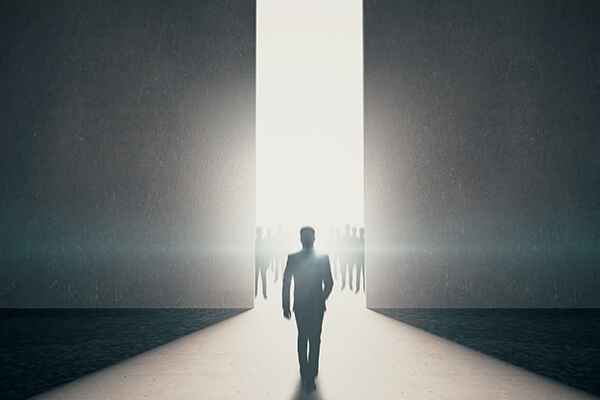
Being A Rockstar: I started looking for opportunities where there might be some deficit that I could show up for in somebody’s life.
It chokes me up still to this day, “I didn’t want to give up. I knew they’d find me so I hung in there.” I had nothing to do with that. I can’t take any credit whatsoever. It’s God’s thing. I thought, “To be part of a song that has even one story like that where it helps somebody get through something that difficult.” I got locked in the bathroom once and I was traumatized.
That’s the story you shared. I mixed up another one as well, but that’s the one I wanted you to share. It was Professor Randy Pausch, who coined that phrase, “The Last Lecture.” I’ve asked every single one of my guests, “If you had one day to live, what would be your one consolidated message to the world?” When you come up with one powerful lyric amongst all of the lyrics in that song, what’s your one message to the world right now with the commitment that I want to have you back to talk a lot about your life and what you’ve learned?
We didn’t get past 2005, did we?
We haven’t even talked about your new all-star band and all the things that you’re doing. Let’s leave readers with one powerful message. What would you say to the world right now coming out of this Corona that has re-constructed the new normal? What’s your message?
As you were asking me to do that, I was going through so many quotes and messages. I read a lot and I was thinking about this, that, the other thing. They were racing through my head. I can’t put it in an elegant way. I’m not saying this as an artist. Everybody has to do something creative. It might even sound righteous, and I don’t want to sound that way. I couldn’t even get into a studio because you’d have to have people running that studio and engineers, and then you’d have to have musicians that want to come in and work with you, and we’re not supposed to be in the same room. It wasn’t an option. No shows.
I’m a visual artist too, so I paint a lot. There was an epiphany I had where I was painting and I kept on looking forward to having an art show. It’s not about selling the work that I was excited about. It wasn’t having people say, “I love your art and you’re doing great,” or something like that. I realized, for me, it’s about taking something that is personal and then sharing it. I tend to think in singular terms.
I’m not trying to come from a place of saying, “Let’s be altruistic and think about others all the time.” My prayer in the morning is, “Today, since I can’t go out and do what I’m good at and what I’m known for, I’m just Charlie. I’m going to bump into a few people with a mask on when I’m walking to exercise, but I’m that. I’m just here.” I thought, “How can I add value to anybody else’s life today in this scenario?” I was wondering, “Why have I been asking myself that every day?” I tried to be a good guy.
Everybody has to do something creative.
I started looking for opportunities where there might be some deficit that I could show up for in somebody’s life in this situation where I couldn’t go out into the world and be what I think Charlie is. I hope that makes sense. You can’t do it alone. If I don’t do those things, if I don’t affect someone else, that’s the one thing about this whole rock star thing that I’m sure that you went through with your sports.
When you get tired of the dance show, it’s like the Charlie Show for so long. I couldn’t think about me and my next move. I had to start looking at others in order to have any second wind that made me want to keep going. This made it more obvious. When you separate from people, don’t you miss everybody? I don’t have a quote for you, Dan. I’m sorry. I didn’t plan that out.
You’re a walking quote. Everything about you is so amazing. My guest has been the famous Charlie Colin. He and I both agreed on one of his most prolific concoctions, one of my favorite songs he’s written and recorded, Calling All Angels.
Co-wrote. I wrote that one with Pat. I know this isn’t a big deal, but I want to always say co-wrote. I am a collaborator. I greatly participated in that song, but I didn’t write it myself.
I want to sign off with Charlie Colin by refreshing everyone’s memory and challenging everyone to definitely download and listen to Calling All Angels, especially as we’ve had to come together and reinvent our normal. “I need a sign to let me know you’re here. All of these lines are being crossed over the atmosphere. I need to know that things are going to look up because I feel us drowning in a sea spilled from a cup. When there was no place safe and no safe place to put my head, when you feel the world shake from the words that are said, I’m calling all angels, I’m calling all of you angels. I won’t give up if you don’t give up.” That is Charlie Colin.
Thanks for those words. You’re still changing the world after all these years. I appreciate you so much. As I always tune out, close out, and sign off, remember, when you finally decide to be a power player and focus on your passion, preparation, and pursuit of that passion, your power play begins in you. Until next time, remember what Charlie Colin has taught all of us. We need to quantify our takeaway. I challenge all of you as he has done and continues to do, go make a power play. Thanks for joining us, Charlie Colin. We love you. We honor you. Thanks for changing the world. One song, one lyric, one word at a time.
Thanks for having me, Dan. Incredible.
Important Links
About Charlie Colin
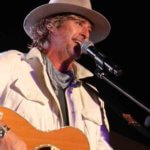 Charlie Colin is a two-time Grammy award-winning musician, songwriter, lyricist, and producer with three Billboard Top 10 Singles and three Platinum Records. Colin is the former Bassist for the Grammy Award-winning band Train. Colin also played guitar and provided background vocals with many other bands after his departure from the group in 2003.
Charlie Colin is a two-time Grammy award-winning musician, songwriter, lyricist, and producer with three Billboard Top 10 Singles and three Platinum Records. Colin is the former Bassist for the Grammy Award-winning band Train. Colin also played guitar and provided background vocals with many other bands after his departure from the group in 2003.
